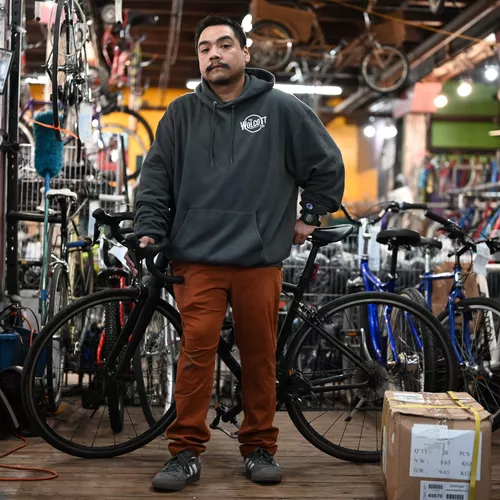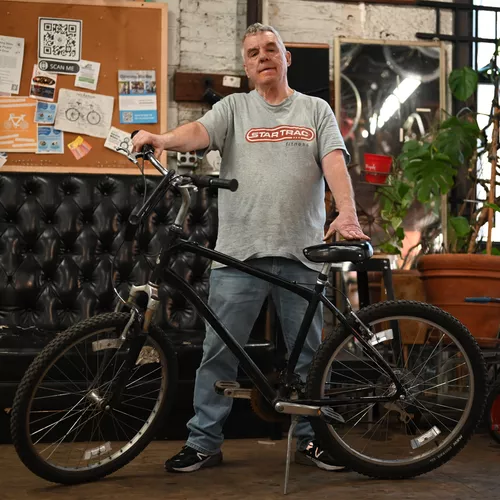ChiWhoBike #30

I use my bike most often for pick up and drop off, but it’s what happens after those, like on the way home, let’s stop, or let’s do grocery pickup, or let’s do an adventure. I do judo, so I take it there and then on my way back I could do quick stops, and it just facilitates adventure that you weren’t always planning on. And that’s why I think when we choose to take the bikes, you stop ‘cause you’re like, I wanna check out that store. And it’s easy to stop, where in a car you gotta find parking and all the things. I’m reading that book, Bikenomics, and they talk about how people who bike actually spend more money locally. Because you stop, you drop in more, you support local. So I think that what we do most is commute, but it opens doors to have whatever adventures along the way. And I also think it makes adventure accessible, instead of like a day trip. Your adventure becomes that hour in the playground you weren’t planning, and it absolutely makes your day.
I think that Chicago has such a segregated history and present. And I think also the bike lane developments and the accessibility developments you see, you see them in gentrified areas or places where there’s a lot of investment that’s pushing people out. So I don’t like that the bike lanes are pretty focused on white people, or people with access and money, and who are able-bodied and cis. And so what I don’t like is biking can really echo and create more accessibility and do so much more. But I think unfortunately it can be focused only on or accessible most to people with money or who are white or with privilege. And I also don’t like that I leave the home with my kids and I’m like, gosh, I hope we don’t get hit by a car today. Because you have people who are hit, and you see no change. Our streets are not designed for safety, they’re designed to move cars quickly - they’re not designed to accommodate anybody who’s not in a metal multi-ton vehicle. So it’s very dangerous. But I wouldn’t trade it for anything either.


